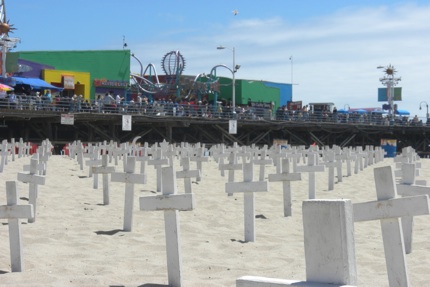The Human Cost of War

Growing up in Germany in the 60s and 70s I saw a lot of documentaries about the Nazi-regime in school. Since then, the sight of German soldiers in uniform always generates mixed feelings. I had come to the conclusion that our military should only be involved in humanitarian actions and never again in war. I was not alone. Most of my friends chose alternative services over the military service. In the 1990s Germany’s highest court ruled that armed deployment of the military was in conformity with the constitution which created heated discussions regarding the morality, pros and cons of that decision.
When I came to the United States I discovered that it was hard for me to understand the U.S. way of honoring their military in big parades, speeches and public events. It just made me feel uncomfortable. By now I do understand some of the many reasons why women and men join the military but I still wonder why the United States is more likely to spend millions for wars than for the fight against poverty and other problems of their own people at home.
Looking for answers to the question “Why do soldiers go back to war?” as a reporter for German radio I did find a place that in this context despite all it’s contradictions, makes sense to me: The Arlington West memorial on Santa Monica Beach. Every Sunday veterans put crosses into the sand next to the amusement park on the pier to remember and honor all the US soldiers that died in the wars of Afghanistan and Iraq. “We want the public to understand the real human cost of war,” explained Michael Lindley, one of the organizers at the heart of this sobering memorial. Military and peace activists find common ground in this purpose. I can fully support Michael’s hope: ”That we can change ideas and find that there are other ways to go about conflicts other than violence.”
